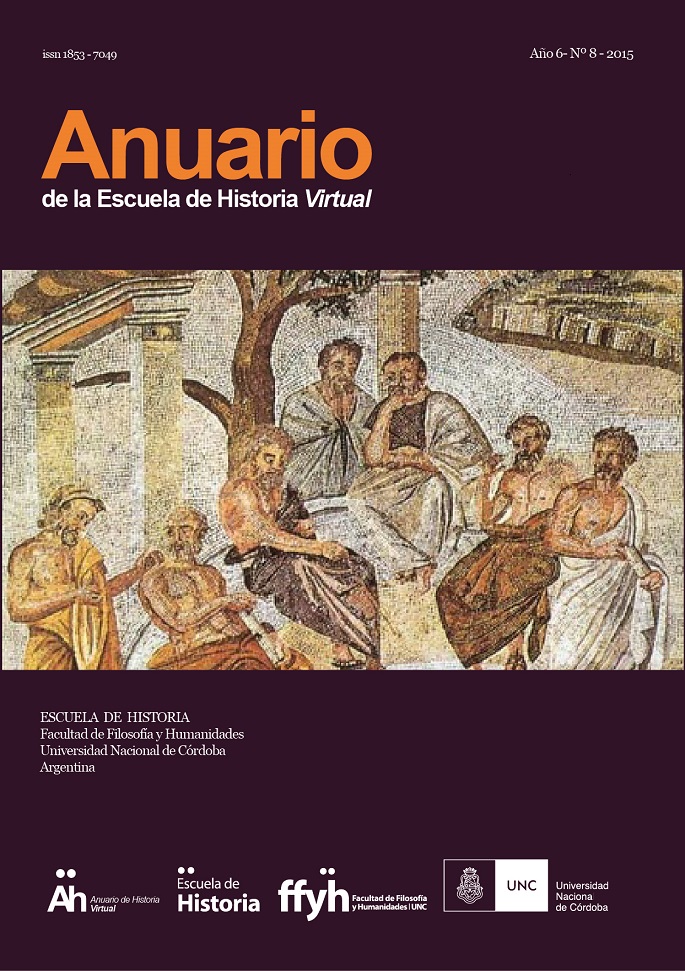Êthos and Greek Identity in the Early Empire. Models of Virtue and Citizenship in Plutarch’s Lives of Pompey and Brutus
Main Article Content
Abstract
The problem of “otherness” is approached in the Bioi Paralleloi of Plutarch of Chaeronea. Plutarch, as a member of the Greek provincial elite, legitimated by perhaps an idealized past, takes part in the process which links the Greek and the Roman through a relationship based upon negotiation.The work of this pepaideuménos models a shared ideal of civilization by resignifying the sociocultural, political and identitary encounter of both societies. Based on the analysis of the Life of Pompey and Brutus we will address Plutarch’s elaborated composition of both chacacters’ êthos, taking into account the “models of virtue” that he builds of them. Moreover, we will tackle the understanding of republican citizenship, which is related to the consideration of tyrannicides during the Early Empire.
Article Details
Issue
Section
Dossier: Greek Intellectuals and Roman Power
Esta Revista es de Acceso Abierto (Open Access). Sigue la licencia CC Reconocimiento-NoComercial_SinObraDerivada 4.0 (http://creativecommons.org/licenses/by-nc-nd/4.0)
Bajo los siguientes términos:
Atribución - Usted debe dar el crédito apropiado, proporcionar un enlace a la licencia e indicar si se hicieron cambios. Usted puede hacerlo de cualquier manera razonable, pero no de ninguna manera que sugiera que el licenciante lo respalda a usted o a su uso.
No comercial - Usted no puede utilizar el material con fines comerciales.
NoDerivados - Si remezclas, transformas o construyes sobre el material, no puedes distribuir el material modificado.
